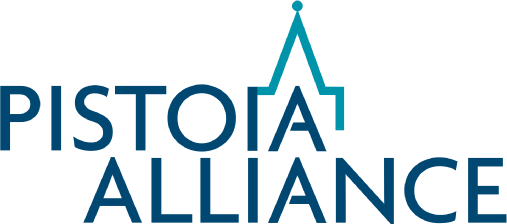Antibodies are proteins that recognize the molecular surfaces of potentially noxious molecules to mount an adaptive immune response or, in the case of autoimmune diseases, molecules that are part of healthy cells and tissues. Due to their binding versatility, antibodies are currently the largest class of biotherapeutics, with five monoclonal antibodies ranked in the top 10 blockbuster drugs. Computational advances in protein modelling and design can have a tangible impact on antibody-based therapeutic development. Antibody-specific computational protocols currently benefit from an increasing volume of data provided by next generation sequencing and application to related drug modalities based on traditional antibodies, such as nanobodies. Here we present a structured overview of available databases, methods and emerging trends in computational antibody analysis and contextualize them towards the engineering of candidate antibody therapeutics.
Resource Tag: Delivering Data Driven Value
Application of Recently Developed FAIR Metrics to the ELIXIR Core Data Resources
The FAIR (Findable, Accessible, Interoperable and Reusable) principles aim to maximize the discovery and reuse of digital resources. Using recently developed software and metrics to assess FAIRness and supported through an ELIXIR Implementation Study, Michel worked with a subset of ELIXIR Core Data Resources to apply these technologies. In this webinar, he will discuss their approach, findings, and lessons learned towards the understanding and promotion of the FAIR principles.
Ontology Mapping for Semantically Enabled Applications
In this review, we provide a summary of recent progress in ontology mapping (OM) at a crucial time when biomedical research is under a deluge of an increasing amount and variety of data. This is particularly important for realising the full potential of semantically enabled or enriched applications and for meaningful insights, such as drug discovery, using machine-learning technologies. We discuss challenges and solutions for better ontology mappings, as well as how to select ontologies before their application. In addition, we describe tools and algorithms for ontology mapping, including evaluation of tool capability and quality of mappings. Finally, we outline the requirements for an ontology mapping service (OMS) and the progress being made towards implementation of such sustainable services.
Progress towards Commercial FAIR Data Products and Services
Elsevier is a global information analytics business that helps institutions and professional’s advance healthcare and open science to improve performance for the benefit of humanity. In this webinar, we discuss how Elsevier is increasingly leveraging the FAIR Guiding Principles to improve its products and services to better serve the scientific community.
Benefits and Costs of FAIR Implementation for the Life Sciences Industry
Hear our panel of experts from technology support providers and the biopharma industry share their views on the “Benefits and costs of FAIR Implementation for life science industry”.
Hosted by Ian Harrow (Pistoia Alliance). The panellists were James Malone (SciBite), Filip Pattyn, (OntoForce), Drashtti Vasant, Alexandre Grebe de Barron (Bayer)
Promoting safety culture: An overview of collaborative chemical safety information initiatives
This paper reviews collaborative safety initiatives in science, highlights ongoing challenges in sharing safety information, and proposes that the ACS can play a key role in fostering a strong safety culture through data sharing and collaboration.
Implementation and Relevance of FAIR Data Principles in Biopharmaceutical R&D
This article argues that implementing the FAIR (Findable, Accessible, Interoperable, Reusable) data principles is essential for enabling digital transformation and improving R&D productivity in the biopharmaceutical industry. By making data machine-readable and better organized, FAIR enhances the utility of artificial intelligence and machine learning in drug discovery and development. The article discusses the technical, cultural, and organizational barriers to FAIR adoption, including the need for data governance, stewardship, and cultural change toward data sharing. It highlights the expected business benefits, including time and cost savings, increased collaboration, and faster innovation, and emphasizes the role of cross-industry collaboration, such as that led by the Pistoia Alliance, in driving FAIR implementation.
Beyond SEND: Leveraging Non-Clinical Data to Drive Translational Research Forward
This article discusses the Pistoia Alliance’s efforts to enhance laboratory safety through the development of the Chemical Safety Library (CSL). Recognizing that unexpected incidents in laboratories provide valuable learning opportunities, the CSL aims to collect and share real-world hazardous reaction data from scientists across academia, industry, and government institutions. By crowd-sourcing this information, the CSL seeks to prevent repeat incidents and promote a culture of safety within the scientific community.
Results of the Ontology Alignment Evaluation Initiative 2018
The Ontology Alignment Evaluation Initiative (OAEI) 2018 aimed to compare ontology matching systems through precisely defined test cases, encompassing 12 tracks with 23 test cases and participation from 19 contributors. These tracks varied in complexity, from simple thesauri to expressive OWL ontologies, and employed different evaluation modalities such as blind, open, or consensus-based evaluations. The evaluation utilized platforms like SEALS and HOBBIT for automated processing, providing a comprehensive assessment of various ontology matching approaches. This initiative serves as a foundation for future improvements in ontology matching systems by offering a standardized benchmarking framework.
Harmonizing FAIR Data Catalog Approaches
The Pistoia Alliance and the Linked Data Community of Practice hosted a panel discussion describing three implementations of data catalogs in their quest for the FAIR-ification of data.
Ready, Set, GO FAIR
Hear Erik Schultes from @GOFAIRofficial (part of the Linked Data Community of Practice seminar schedule, organized by AstraZeneca) discuss what are the FAIR principles and give examples of their implementation.
HELM is included in the technical guidance for ISO 11238
This document provides guidelines for implementing ISO 11238. This document is developed in response to a worldwide demand for guidance on the implementation of internationally harmonized specifications for medicinal products. It is one of a group of four implementation guides for a total of five ISO standards which together provide the basis for the unique identification of medicinal products.
